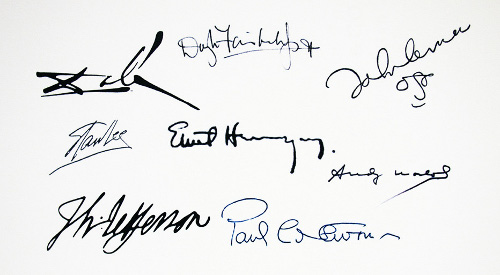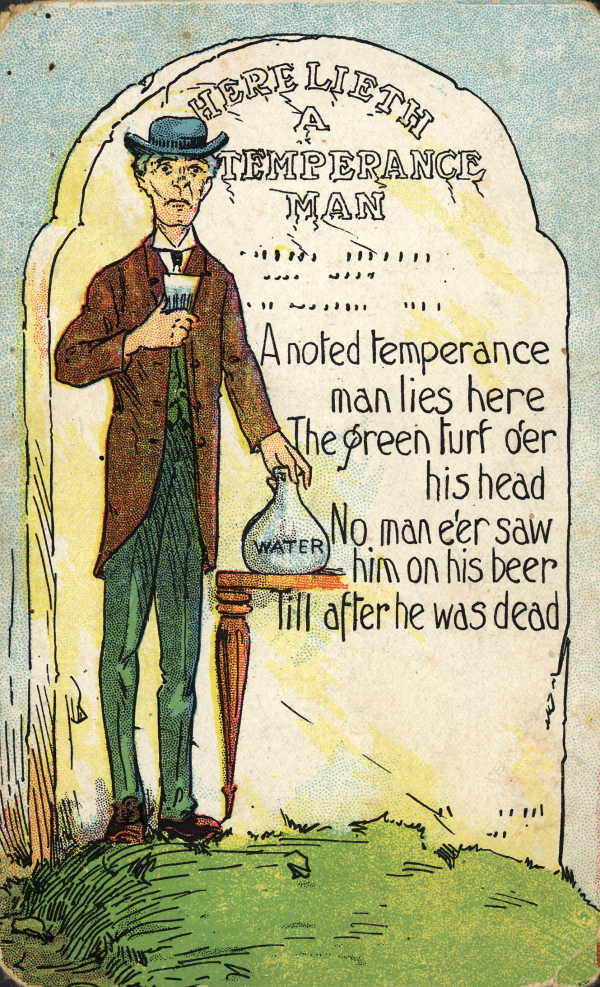
Editor’s Note: This is a guest article from Kyle Eschenroeder.
Recall a moment of clarity.
A moment where tension untangled as insight suddenly appeared. The tension caused by the stress of not knowing what you feel you must. The release by an apparent answer. Few things feel better.
These moments have mostly eluded me, especially over the course of the last year. As traditional sources of clarity have waned, I’ve broadened my search.
Normally, we attempt to achieve clarity through gathering more information or creating a shared definition. We gather information through research, taking action, observing, and reflection. Time creates space for these approaches to compound or interact, allowing an image to emerge.
Yet there are categories of dilemmas for which no amount of information or special knowledge will provide clarity. These are the topics that drive some of us into extended existential crises. Am I spending my life well? Am I giving my time to the right people? Am I supporting the right group? Do I need to update my political beliefs?
Clarity on these types of questions is rarely accessible through study, contemplation, or experimentation alone. Sometimes external shocks — like a near-death experience or the birth of a child — provide the necessary illumination. More often, however, the clarity we need seems to come through the development of certain qualities — traits like self-reliance, faith, and courage.
These and other perception-enhancing attributes can enable you to see with a clear lens. One that doesn’t distort or block your view.
The more we understand clarity and where it comes from, the better chance we have at experiencing it outside of rare flashes of insight.
The Importance of Clarity
Clarity Provides Focus
Clarity is a powerful sorting mechanism. It allows us to quickly dismiss that which is irrelevant or harmful.
It’s difficult to become addicted to your social feed when you’re clear about your intentions. It’s difficult to become overwhelmed by media and options when you’re clear about what you’re looking for.
Yuval Harari, the author of Sapiens, a book that distilled hundreds of thousands of years of human history into a few hundred pages, has said, “In a world deluged by irrelevant information, clarity is power.” He says his ability to stay clear about the ultimate goal while writing a book is the only way he can achieve that level of clear synthesis. And he’s dedicated to cultivating this ability: he not only meditates two hours daily, but also spends one to two months on a silent retreat each year.
In an interview, Francis Ford Coppola explained that the way he maintains the clarity needed to make the myriad decisions required in directing a movie is by keeping a one-word theme in mind for each of his films:
when I made The Conversation, the theme was privacy. When I made The Godfather, the theme was succession. And I taught my children to try to know what that big theme is because . . . you have to answer so many questions every day, like should she have long hair or short hair; should she wear a dress or a skirt; should he have a car, or should it be a bicycle? And you know the answer, so you just fire them off. But once in a while, you don’t know the answer. And that’s when you say, well, what is the theme? . . .
So [the] theme — in the case of The Godfather being succession, I would always know that as long as I was telling the story of the succession of — there was a king, and he had three sons. And one was very this, and one was very that . . . I knew . . . what I was doing.
Without clarity, there’s nothing to focus on. Without clarity, there’s no sanity.
Clarity Provides Motivation
The less clear a target, the more difficult it is to take a shot.
The less clear a task, the more difficult it is to tackle.
If we have momentum, motivation is everywhere. If we’re stuck, confused, or beaten down, motivation becomes precarious. It’s tempting for me to feel that the problem is motivation, that the energy I once had is gone. This is false, of course. The world is full of examples of those older and weaker than I with a seemingly limitless supply of energy. What’s missing is clarity.
James Clear has suggested that “Most people think they lack motivation when they really lack clarity.”
That well of sustainable motivation is unlikely to be found in another cup of coffee or latest nootropic. It may not be available after another cold shower, breathing exercise, or workout.
Exhaustion is often a symptom of a lack of clarity.
Clarity Provides a Sense of Safety
Sometimes an organization doesn’t need a solution; it just needs clarity. —Ben Horowitz
When you can’t sense what’s around you, it’s not safe to move.
Imagine driving on the interstate on a Friday night. There’s a bunch of cars on the road, getting to wherever they’re going for the weekend. Your car lights and those around you allow you to see where potential dangers are. You’re probably going a little over the speed limit, listening to classic rock or the AoM podcast or something, having a good time. Then huge rain droplets start hitting your windshield. Suddenly you can’t see as well as you previously could. The lights start blurring, creating anxious moments of blindness as your windshield wipers race to clear the way for you to see what’s ahead. It’s pouring now. You see brake lights brightening through the downpour. You hit your brakes. An 80 mph trip becomes a 60 mph trip. People suddenly show what terrible drivers they are; you can’t trust them in these new conditions. The blocked view — the loss of clarity — reduced the sense of safety on the road, throwing everyone off.
These kind of opaqueness-induced traffic jams occur not only on the road, but throughout the rest of life as well. A lack of a shared language and shared aims create acrimony in the culture wars. Varying norms add friction to relationships. Confused standards bring chaos to organizations.
When you’re not sure how what you say will be taken, you tend to say nothing. When you’re not sure what constitutes proper decorum, you stand in the corner. When you’re not sure what you’re supposed to be going for, you sit on your hands. Think of the feeling of bewilderment when you’re dropped into a sport or board game in which you don’t have any idea of the rules. Misunderstanding and paralyzed inaction result.
When shared language and contexts are obvious, we’re able to interact with each other more fluidly. There’s less guesswork in our interactions with others. Think of the difference in giving directions to a native of your city versus a new visitor; with the former, you can be concise and nuanced, while with the latter your directions must be long-winded, detailed, rudimentary. Or think of the way one can communicate volumes to a spouse simply by raising an eyebrow.
A sense of clarity gives us a sense of safety, this allows us to trust in the world, and trust allows us to focus our energies in bolder and more productive ways. The better you understand the rules of the game, the harder you can play.
The Qualities That Create Clarity
The clarity we seek can be found in a variety of sources. But not all are created equal.
Sometimes creating clarity is as simple as writing on a problem until it clicks into focus. Sometimes clarity is found in conversation and education. And sometimes it’s as straightforward as defining the rules of engagement.
But these approaches don’t always do the trick.
Certain feelings, emotions, can also bring clarity — at least of a particular type.
Intense pain, for example, can bring the world into startling, brutal focus. This is true to such a degree that some argue pain is our fundamental anchor to reality. Few things command our attention as easily and steadily as pain. When sitting with your hand in ice water, it’s difficult to pay attention to much else.
The point of pain becomes crystal clear, the rest of the world disappears.
Anger is similar. The world collapses onto a single point of indignation or injustice.
The clarity that comes with these sensations can focus our energies and provide the intense motivation to make a correction in the world.
Yet they can quickly become elements which obscure rather than enhance our powers of perception. In his online book Meaningness, David Chapman calls anger “a distorted manifestation of clarity.” If we’re not able to ease the pain or anger, they will blind us to their solutions. At a certain threshold of pain, we’ll pass out. If we hold onto anger too closely, for too long, our vision becomes myopic.
When common and confused sources of clarity fail us, developing a set of traits and mindsets can open up a different, wider lens on the world:
Courage
Like anger and pain, fear is another way to confused clarity, described famously by Frank Herbert in Dune:
Fear is the mind-killer. Fear is the little-death that brings total obliteration.
Like pain or anger, fear violently directs our attention to its object. When fear is present, it’s difficult to pay attention to anything else. When we deal with a fear quickly, it’s not a big deal. When a fear is left to linger, it moves into the background, silently distorting the lens with which we perceive the world. A constant fear of being fired will make it difficult to have clarity at work. A constant fear of being abandoned will make clarity in our relationships a challenge.
Clarity is impossible without courage.
Mental clarity is the child of courage, not the other way around. —Nassim Taleb
Courage comes from exposure. The scale of exposure can change.
Writing the thoughts you want to share publicly in private first. Talking through a difficult work conversation with a trusted friend before bringing it to your boss. Adopting a dog before having a kid.
Ultimately, courage follows action in the face of fear. Malcolm Gladwell says, “Courage is what you earn when you’ve been through the tough times and you discover they aren’t so tough after all.”
Courage creates clarity.
I will face my fear. I will permit it to pass over me and through me. And when it has gone past I will turn the inner eye to see its path. Where the fear has gone there will be nothing. Only I will remain. —Frank Herbert
Faith
It is characteristic of the person who is emotionally in health that he can ‘make do’ with fewer guarantees . . . He does not need, therefore, what amounts to a guarantee that his truth . . . is all truth, or that his actions will inevitably be crowned with success. Since he experiences, by and large, an inner state of happiness and freedom, he can take it more or less for granted that he has somehow got hold of enough truth to go on for the time being — and that more is likely to come when he has gone far enough to need and find it. . . .
Faith of this sort is by no means a static element in the life of an individual. It can best be understood as the psychic permission he enjoys to go on from where he is.
—Harry and Bonaro Overstreet
What if you knew, in your bones, that it was impossible to take a wrong step?
What if perceived failure, sin, setback, pandemic . . . was all part of the perfect divine plan?
If what you’ve done so far has led you here, and this is where you’re meant to be, do future mistakes seem so dangerous?
If there are no wrong steps, must uncertainty lead to a loss of clarity?
You’ve made many missteps so far. You’re here. You’ve survived.
Is it such a stretch to have faith that you’ll survive your next misstep? Is it possible that your next misstep could actually benefit you in the long run?
Emergent resolutions, unlike planned solutions, usually occur despite authoritarian goals and plans, not because of them. —Venkatesh Rao
Many of us like to talk about the fragility of plans by echoing Mike Tyson’s “Everybody has a plan until they get punched in the face.” Still, it’s difficult to maintain faith when we’re forced to constantly rewrite our plans.
Developing a sense of faith in the importance of the present and possibility of the future can help us stay clear enough to see the new opportunities that come with change.
It becomes clear that the next step matters even if you don’t know what comes after that. It becomes clear that perfection isn’t required or even desired. It becomes clear that life is worth your effort.
Faith is the beginning of all good things. —The Buddha
Honesty
Thank God for granting me this moment of clarity, this moment of honesty. —Jay Z
Hova was struck by a moment of honesty, which gifted him a moment of clarity.
A lie is, by definition, a distortion. When we lie to ourselves, we remove our ability to see clearly.
In an effort to improve yourself, you may think you need to change yourself, and in order to change yourself, you may end up lying to yourself. This is because we reject pieces of ourselves that scare us, repressing them rather than integrating them. The collection of these rejected parts of ourselves is known as our “shadow self.” In A Little Book on the Human Shadow, Robert Bly describes this process of rejection as putting parts of ourselves in a bag and talks about the danger of keeping them there:
when we put a part of ourselves in the bag it regresses. It de-evolves toward barbarism. Suppose a young man seals a bag at twenty and then waits fifteen or twenty years before he opens it again. What will he find? Sadly, the sexuality, the wildness, the impulsiveness, the anger, the freedom he put in have all regressed; they are not only primitive in mood, they are hostile to the person who opens the bag.
More succinctly, he says that “Every part of our personality that we do not love will become hostile to us.”
The process of correcting this is slow and can take many forms. Bly suggests that “Using language consciously seems to be the most fruitful method of retrieving shadow substance scattered out on the world.” Fundamentally, though, seeing ourselves clearly requires honesty with ourselves, and honesty comes from self-acceptance.
The curious paradox is that when I accept myself just as I am, then I can change. —Carl Rogers
Acceptance isn’t stagnation, it’s seeing clearly. You may want something you feel you shouldn’t, but ignoring a desire won’t make it go away.
Is the felt lack of clarity coming from not admitting what you want or who you’ve become?
Above all, do not lie to yourself. A man who lies to himself and listens to his own lie comes to a point where he does not discern any truth either in himself or anywhere around him, and thus falls into disrespect towards himself and others. —Fyodor Dostoyevsky
Humility
There is an insecurity inside us that comes with the need to know what the world — our world — will be like and should be like and how we’ll feel about it. When these answers are inevitably hard to come by, it’s tempting to pretend we’ve nevertheless got it all figured out. But this overconfidence creates another confused, fragile sense of clarity, and gets us into trouble.
Your mistake was not in imagining things you could not know — that is, after all, what imagination is for. Rather, your mistake was in unthinkingly treating what you imagined as though it were an accurate representation of the facts. —Daniel Gilbert, Stumbling on Happiness
Part of humility is recognizing that the world is, to a large degree, unpredictable. We don’t know what the economy will do (few guessed that the stock market would reach all-time highs the same year we experienced a world-shaking pandemic). We aren’t even good at guessing what will make us happy.
Humility allows us to stop conflating certainty and clarity. We can be clear about what we must do without being certain about how things will turn out.
Memento (Living) Mori
If you hold a healthy awareness of your own mortality, your eyes will be opened to the grandeur and glory of life, and that will evoke all of the virtues I’ve named, as well as those I haven’t, such as hope, generosity, and gratitude. If the unexamined life is not worth living, it’s equally true that the unlived life is not worth examining. —Parker J. Palmer
Someone, at some point, has surely recommended that you meditate on your death, even if it was indirectly as a call to YOLO. And this is indeed a worthy suggestion; meditating sincerely on the inevitable cessation of experience can provide a clarity unavailable when we take eternity for granted.
Sometimes, though, this falls flat for me. Sometimes I think of my death and shrug. Like the Stoics said, death is going to wherever we were before birth.
In moments like that, what hits me is this: Have I joined the walking, breathing dead?
in all corners of the earth there are waiting ones sitting who hardly know to what extent they are waiting, and still less that they wait in vain. —Friedrich Nietzsche
When I come to the realization that I’ve been living a month or more in quiet desperation I become terrified. Few things are more disturbing than waking up to the fact that my struggles have been merely for survival and that I haven’t taken a moment to appreciate the impossible beauty of a tree or sky for an extended period of time.
Realizing that we’ve joined the walking dead can provide a similar type of clarity. What’s important comes into view, as do the things that have lulled us into a stupor.
This may be our last day to kiss our wife, pet our dog, drive past that church. It may also be the day we recognize that we’ve been moving through an unlived life.
Stillness
When water stops rushing, the silt settles, the river floor comes into view.
When we stop our rushed, desperate, demanding search for clarity, we may get a glimpse of something unavailable to us before.
Noise is preconceived notions. It’s the memory of a feed full of predictions, of family demands, of status games, of norms, of scars, of embedded stories. Noise is you on fear — reactive, small, addicted to the things keeping you stuck.
Stillness is openness. It’s what you feel on a hike, in the embrace of a loved one, when you’re immersed in flow. Stillness is you with your ego turned way down — receptive, nonjudgmental, playful.
When you become still (when you become you), you may hear a faint call. With the clarity of calm, you may gain access to your whims.
Godspeed
Emerson wrote, “I would write on the lintels of the door-post, Whim. I hope it is somewhat better than whim at last, but we cannot spend the day in explanation.”
Silence allows us to hear the whim.
Humility allows us to consider something as uncertain as a whim.
Honesty knows if the whim is for us or not, if it’s worth writing down.
Faith is the hope in what lies beyond the whim.
Courage takes the leap rather than explain the whim away.
Remembering that this could be our last day alive, or that we’ve neglected to come alive so far, can help develop each of these.
Every morning I try for a clarity detached from certainty. A clarity about how I ought to be, what I should care about and focus on. I meditate, I journal, I get punched in the face. Then, on a good day, I start again.
________________
Kyle Eschenroeder is a writer who we partnered with to publish The Pocket Guide to Action: 116 Meditations on the Art of Doing. Once a week he sends out a letter with 5 important ideas; click here if you’d like to be included.







